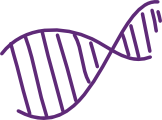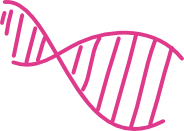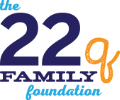
November 7-9, 2025 at Morgan's Camp in San Antonio
Camp 22q Texas
14th Annual Family Retreat
We provide support and resources to individuals and families living with 22q.
We do this by:
Raising Public Awareness
Facilitating Connections
Enhancing Services
Supporting Education
Advancing Programs

Medical
Medical problems common in 22q include heart defects, feeding challenges in infancy due to palate differences, lowered immunity, sleep issues, gastrointestinal tract problems and small stature.

Social
Social skills deficits, attention difficulties and anxiety can hinder the development of friendships. Individuals may benefit from counseling to support healthy relationships.

Developmental
Most children with 22q deletion experience some degree of developmental disability with delayed speech and language development. Delayed infant milestones, learning delays and emotional dysregulation are common.

Educational
Children with a 22q may have different learning styles and require some extra help in school, such as special education placement and/or specially designed instruction. Concepts typically become more challenging after third grade.
A Genetic Disorder
In cases of 22q11.2 deletion syndome (also known as DiGeorge syndrome and Velocardiofacial syndrome/VCFS), a small part of the 22nd chromosome is missing at conception (called a micro deletion). It affects every cell of the body, with over 190 known symptoms/anomalies associated with it. No two people are affected in the same way, often making diagnosis very difficult. It is second only to Down syndrome in occurrence. In spite of being relatively common, many medical professionals are unfamiliar with it.
Other similar diagnoses are 22q duplication and 22q distal deletion. Because of these closely-related conditions, we choose to use the inclusive nomenclature “22q.”






